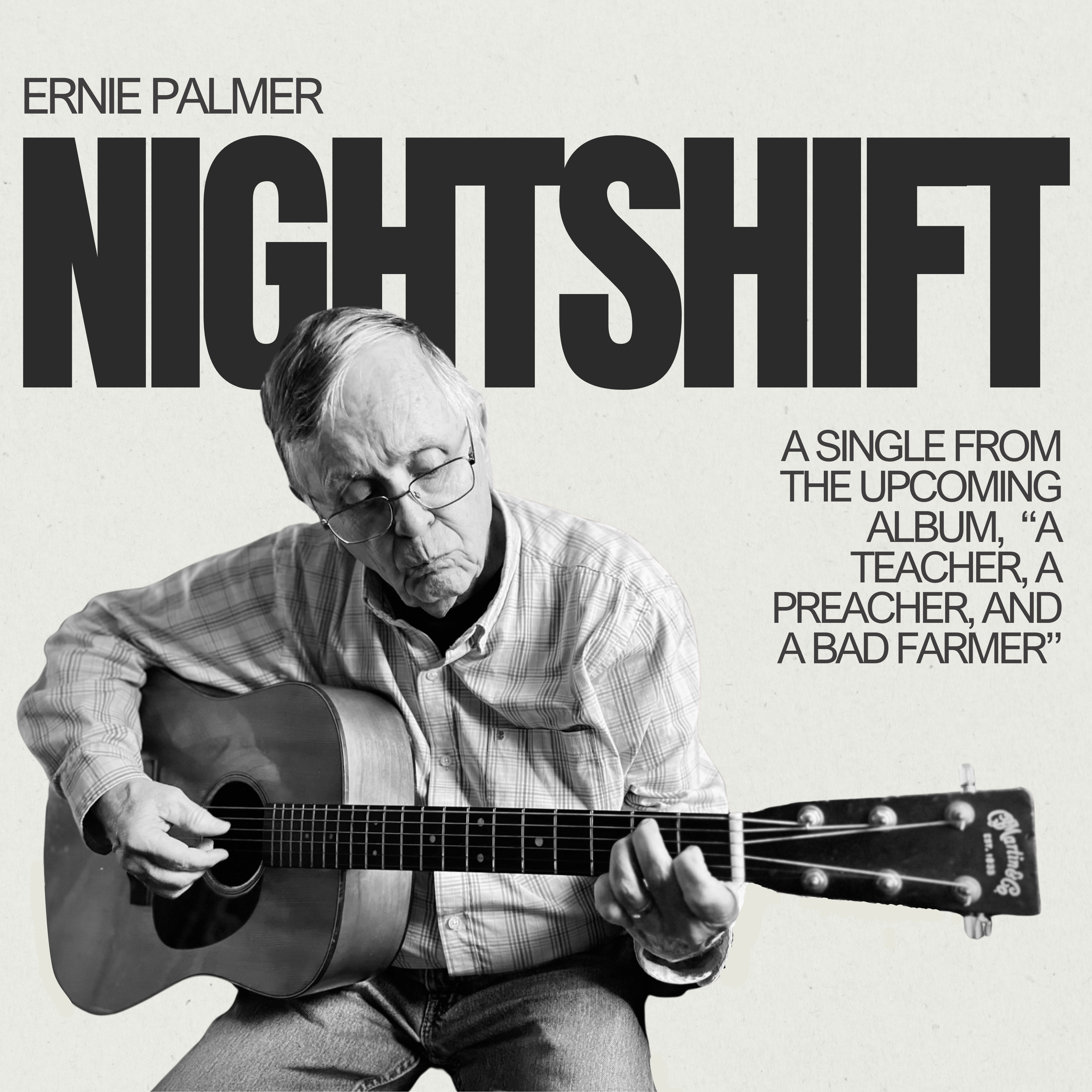|
Ernie Palmer, A Teacher, A Preacher, & A Bad Farmer (independent, 2025)
One rarely -- if ever, maybe -- hears this sort of thing these days, in part because few singer-songwriters know much about traditional music, though many don't mind being called "folk singers." But with Palmer the connection between past and present is sharp and strong. There's an old man's voice, backed (with the occasional insertion of an amplified guitar) by oldtime instruments (banjo, fiddle, mandolin) and carried forward by the sound of long-ago Appalachia. A retired schoolteacher, Palmer has spent the bulk of his life in Cartersville, Georgia, engaged with a lot of stuff besides directing kids' education. He served in the Vietnam War, memories of which darken his artist's imagination. "Old Trooper," my favorite song on the album, movingly blends dreamlike visions of Civil War bloodshed with his lived experiences on the killing fields of Southeast Asia. I've never encountered the like. Its images and melody haunt one's heart long after the recording has ceased sounding. Almost everything exudes a kind of noirish dread, as if thoughts and events in this aural space were playing out between twilight and nightfall and looking to looming death. Palmer's reflections and recollections are definitely not those of a callow youth. Rather, they are those of a man who has rambled many roads and now senses the end of the journey as he struggles to sort out what it all has meant. The world he occupies has had its comforts but not an abundance of them. Meanwhile, the memories of his time on it grow ever more remote. The melancholy, banjo-driven "Gainesville Mill" could pass as the kind of ballad the South was producing as it industrialized in the latter 19th century. The farewell lament "The Last Night at Tony's" communicates sentiments that will ring true to anyone who grew up in the country and had to leave it in one's youth. "Garland Reese" revives two fierce folksong traditions -- prisoner and hobo ballads -- with uncomfortably realistic precision. I'm not entirely enamored of the two or three love songs, though. Not that they're bad, but such seem easier to write than the difficult, emotionally complex evocations of wanderlust, tragedy, violence and displacement that comprise the rest of the content. Still, Palmer succeeds uniquely in telling fresh stories in the old way. 

|
 Rambles.NET music review by Jerome Clark 24 May 2025 Agree? Disagree? Send us your opinions! 



 |
 You can call Ernie Palmer a singer-songwriter, I suppose, but that will be before you get a chance to hear what he does with the label. As soon as his voice lands in your ears and the words start to register, you'll catch a man defying the mold. He is not an acoustic-pop singer carrying on about the usual romantic and personal travails in a contemporary urban landscape. Though the dozen cuts are originals, most sound as if they have been hanging around for a century or more.
You can call Ernie Palmer a singer-songwriter, I suppose, but that will be before you get a chance to hear what he does with the label. As soon as his voice lands in your ears and the words start to register, you'll catch a man defying the mold. He is not an acoustic-pop singer carrying on about the usual romantic and personal travails in a contemporary urban landscape. Though the dozen cuts are originals, most sound as if they have been hanging around for a century or more.
